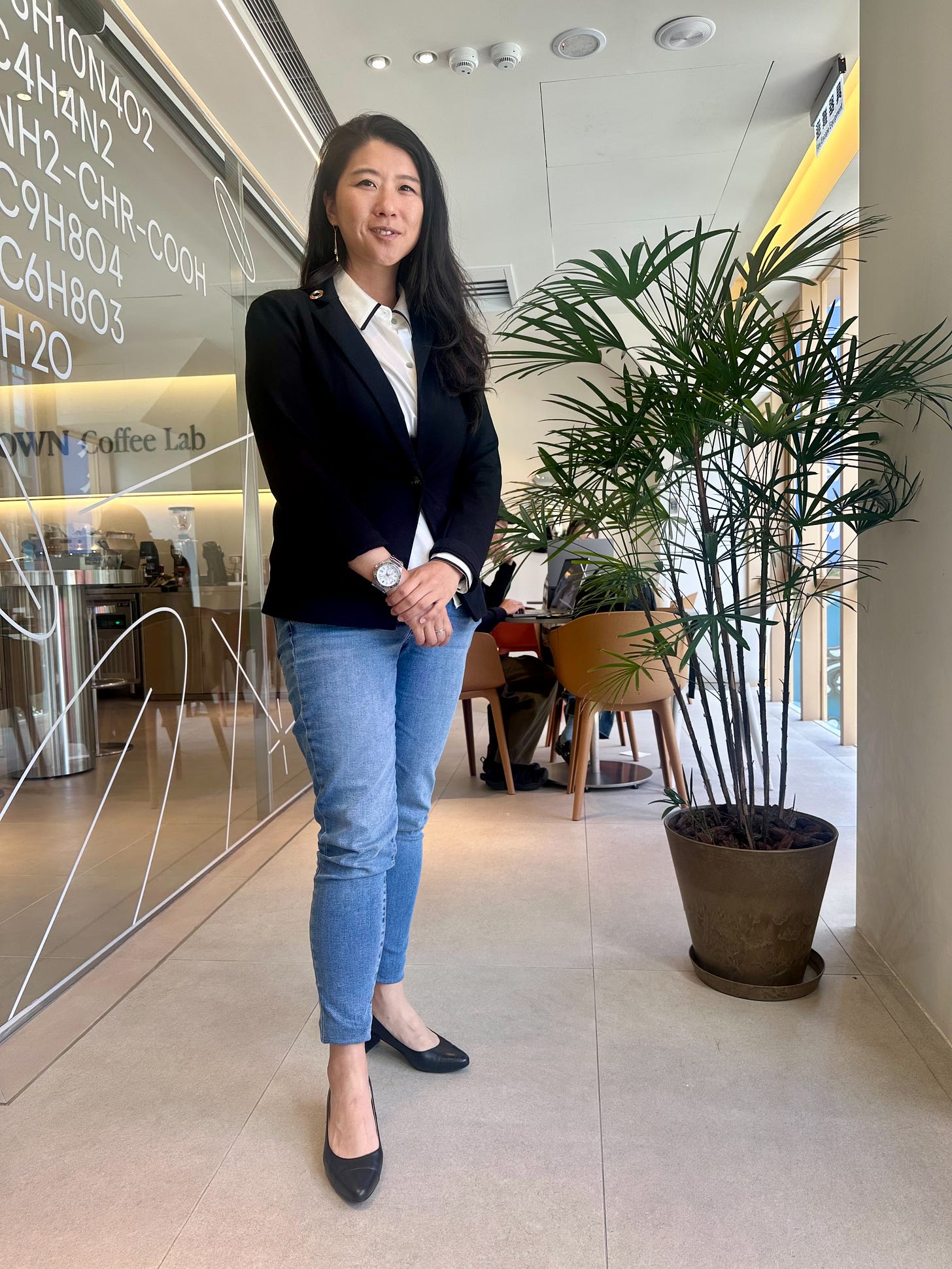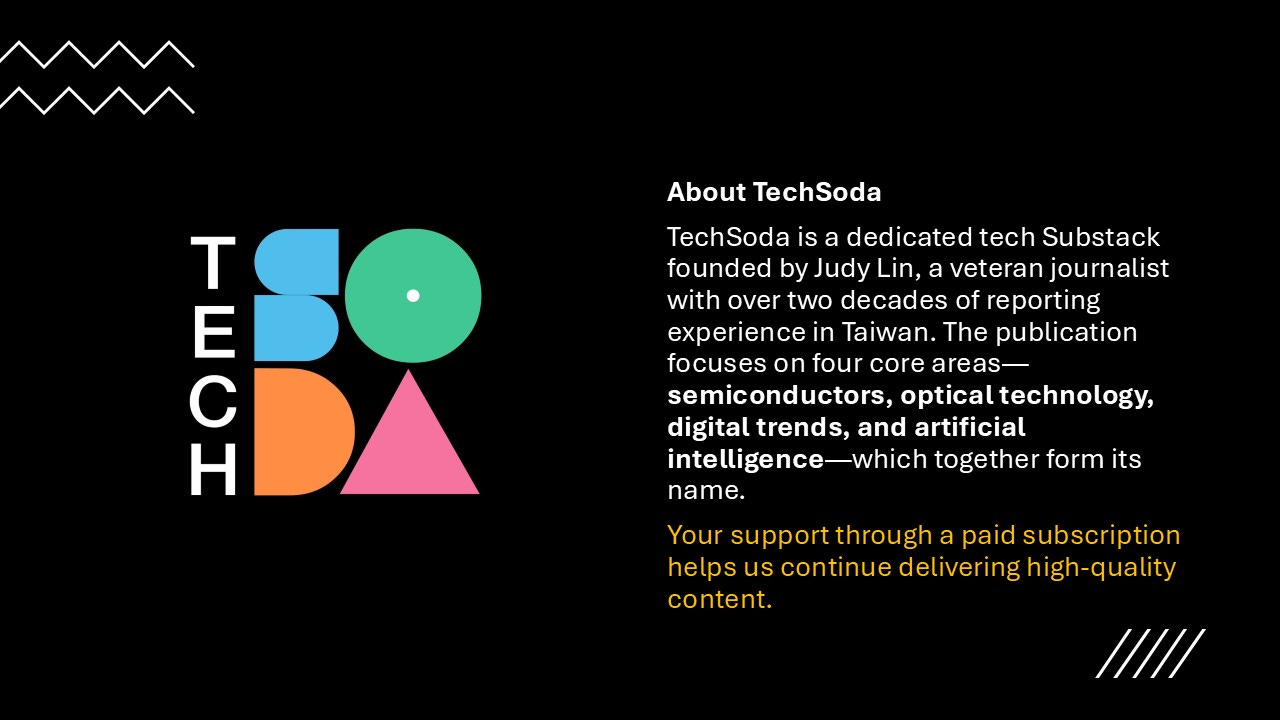From Local to Global: How Emerging Ecosystems Can Build World-Changing Companies
Tiffine Wang, a Taiwanese-American venture capitalist, board advisor, and founder of Onsen Global, doesn’t mince words when talking about Taiwan’s startup ecosystem. Having spent time evaluating AI-native startups globally, Wang sees enormous potential built on Taiwan’s strengths in hardware and semiconductors. But she also believes the startup ecosystem must evolve if Taiwan is to produce more “home run” companies that can truly compete on a global stage.
Here are five of her candid, and sometimes counterintuitive, insights for founders who want to break out of the pack, shared in an exclusive interview with TechSoda.
1. Changing One’s Mindset, Change the WHOLE Ecosystem
In Taiwan, Japan, and much of Europe, entrepreneurs and investors tend to favor safer bets. Capital is often deployed in ways that resemble private equity more than venture capital. With a strong presence of corporate and strategic investors, these players usually prioritize predictable outcomes or strategic advantages over massive financial upside, which reinforces risk aversion across the ecosystem.
The absence of sufficient globally scaled winners from the local ecosystem prompts investors to look elsewhere for opportunities (Silicon Valley, Singapore, Europe, etc.). This dynamic creates a vicious cycle: without breakout successes, investors remain cautious, which in turn limits the chances of building the very companies that could change the game.
By contrast, Silicon Valley thrives on a culture of swinging for outliers. Venture investors accept extremely high failure rates because the occasional breakout can reshape entire industries and deliver extraordinary returns.
As a result, investors who truly want exposure to the venture capital asset class often gravitate toward Silicon Valley and other large, risk-tolerant markets. Meanwhile, local capital flows into safer havens such as real estate or public markets, leaving the cycle of underinvestment in bold startups unbroken.
Breaking this cycle requires both investors and entrepreneurs to reframe their ambitions. Investors must be willing to underwrite true venture risk, backing teams that aim for global scale rather than incremental returns. Entrepreneurs, in turn, need to pursue bolder visions and resist building only for local markets.
2. “Average” Doesn't Win, Stop Catering to Everyone, Everything
Wang’s most direct challenge: “Stop being average, because average doesn’t win in anything.”
Taiwan’s reputation for adaptability and versatility is a double-edged sword. While flexibility is valuable, it often results in a lack of sharp focus. Taiwanese people are very hardworking, so they are willing to take on a lot, but this also leads to overextension in the wrong areas. She sees many startups trying to do “a little bit of everything” instead of being world-class at one thing.
Wang points to TSMC as the model: a company that dominates globally because it is the best at what it does, not because it tries to do everything. Taiwan doesn’t need a thousand average companies — it needs the next TSMC or Nvidia.
3. Building with Global in mind from Day One
From the very beginning, founders must design with international expansion in mind.
That means structuring for overseas capital, building teams across geographies, and cultivating customers outside of Taiwan early. Political tensions only reinforce the importance of diversification: a globally distributed business is not only more resilient but also far more attractive to wary investors.
You need to have people who are experienced with global expansion early on, ideally someone at the co-founder level. Other ways to augment this would be to bring on experienced advisors.
Wang has invested in and successfully helped several overseas startups move into the US markets. Before investing, a key criterion is that the founder must have a strong desire and ability to build a global company. This also includes being able to see that they can compete in the big market. A few unexpected things she had to do include spending time with founders’ spouses to convince them that moving to the US (typically Silicon Valley or New York) is a good idea, and helping them get more comfortable with it.
4. To Be Number One, Hire Tier-1 Talent and Grant Equity
One striking difference Wang observes between Taiwan and Silicon Valley is the approach to equity. In Silicon Valley, the team and advisors are typically incentivized through equity grants.
In Taiwan, equity is still often treated as optional, leading people to see startups as “just a job.” Without ownership, commitment is shallow. Wang argues that if founders want top-tier talent and advisors, they must be willing to share the upside. Equity isn’t a giveaway; it’s the glue that binds people to the mission.
Meanwhile, Wang advises paying more for top talent. “My team is usually small, but each person is a very high-impact, 10x-er; they can do 10x as much as a normal team. With a smaller, smarter AI native team, they can also execute much quicker and effectively.
5. Deep Localization Is Key to Being a Global Company
For Wang, one of the biggest surprises was the communication gap. Even as someone ethnically Taiwanese, she sometimes found it difficult to connect with startups in the local ecosystem.
If a company truly wants to be global, it needs more than just a good product. Deep localization matters: founders must understand how their company is perceived both at home and abroad, and then deliberately shape that positioning. That can mean creating an English brand identity, maintaining a bilingual website, or tailoring materials with cultural nuance so they resonate locally while remaining clear to international audiences. It can also mean telling the story in a way that highlights why the company matters to the world, not only to its domestic market.
Without this deliberate effort, global investors and partners may never discover the company or may dismiss it as “too local.” Wang urges founders to close these gaps proactively. Global ambition requires not only English fluency, but also thoughtful cultural translation and strategic positioning that meet both local authenticity and global accessibility at the same time.
The Bigger Picture
Founders, investors, and institutions must commit to consistently striving for global outcomes and creating a success path with end-to-end support. This includes: world-class technical and commercial talent, sufficient pools of risk capital, strong go-to-market and distribution networks, supportive policy frameworks, mentors with cross-border experience, and strong connections with global venture capital and strategic partners.
Wang’s advice is blunt, but it comes from a place of belief in Taiwan’s potential. The island already has the technical foundations, but it needs an ecosystem that is willing to take risks and stay disciplined in execution. That means not only founders, but also investors, corporates, universities, and policymakers working in concert to enable bold bets. Taiwanese people are very hardworking so they just need to channel their hard-working “愛拚才會贏 (strive will win)” spirit into the right places.


